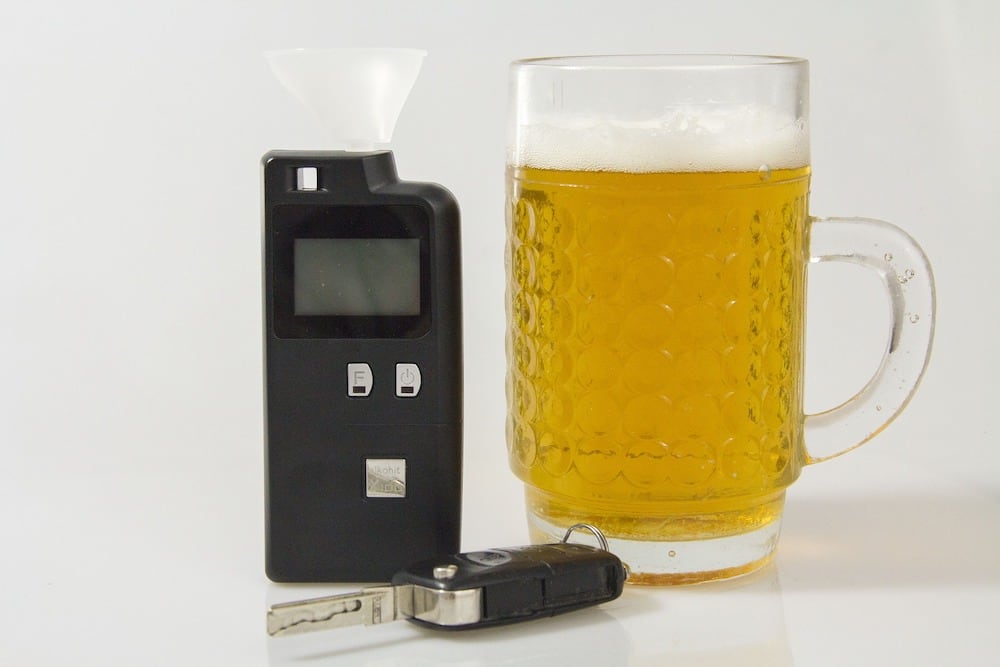When it comes to understanding the intricacies of driving laws, particularly Driving Under the Influence (DUI) and Driving While Intoxicated (DWI) offenses, the stakes are high – and so is the complexity. In this comprehensive guide, we’ll zero in on Texas, a state known for its strict enforcement and unique legal of such transgressions.
We’ll cover extensively what you need to know about DUI and DWI, how they are classified within the legal system, and the consequent ramifications of these offenses in the Lone Star State. Whether you’re a concerned citizen, a curious legal scholar, or potentially on the verge of navigating the Texas justice system, this article will provide you with the clarity and depth you’re searching for.
Stay with us as we dive into the most asked questions surrounding DWI offenses in Texas, including whether they are classified as misdemeanors or felonies, the factors that can escalate a charge, the possible penalties involved, and how these offenses can affect your future.
By the end of this article, you’ll have a thorough understanding of DWI laws in Texas, enabling you to make informed decisions and be aware of the potential consequences that come with driving under the influence.
Is DWI a Felony in Texas on Your First Offense?
Driving under the influence in Texas is a serious offense that can carry significant legal consequences. The classification of DUI as a misdemeanor or a felony largely depends on the specifics of the situation and the offender’s prior history. For most first-time offenders, a DUI is classified as a misdemeanor, but there are circumstances under which even a first offense can escalate to felony status.
In Texas, DUI is typically reserved for drivers under the age of 21 who are not legally allowed to consume alcohol. For these individuals, any detectable amount of alcohol in their system constitutes a DUI offense. The DWI offense, on the other hand, is for those above the legal drinking age and implies a higher level of intoxication. Here’s a breakdown of when a first-offense DWI might reach felony status:
- Injury or Death: If a DWI results in an accident that causes serious bodily injury or death, the charge can become a felony. This is known as intoxication assault or intoxication manslaughter, respectively.
- Repeat Offender: While a first DWI is not typically a felony, it can elevate subsequent offenses. If you have prior DUI or DWI convictions, a new offense can lead to a felony charge.
- Child Passenger: Driving under the influence with a passenger who is under 15 years old can result in a state jail felony charge, irrespective of whether it is a first offense.
In general, the threshold for what constitutes a felony DUI in Texas is strict. If a first offense does not involve any of the above-mentioned factors, it will typically remain within the misdemeanor category, possibly leading to penalties such as fines, license suspension, and DUI education courses. However, every case is individual, and the specifics can alter the legal outcome significantly.
What Are the Penalties for a Felony DWI in Texas?
The penalties for a felony DWI in Texas are severe and designed to serve as a strong deterrent to prevent future offenses. Being convicted of a felony DUI can lead to a range of punishments, from incarceration to financial penalties, and can have long-lasting impacts on someone’s life. Here’s an overview of the potential penalties one might face if convicted of a felony DWI in Texas:
- Incarceration: Felony DWI offenses can result in a prison sentence ranging from 180 days in a state jail to several years in a state prison, depending on the severity of the offense and any prior criminal history.
- Fines: On top of any imprisonment, fines for felony DWI can be up to $10,000.
- License Suspension: A felony DWI conviction is likely to lead to a suspension of your driver’s license for a period ranging between one to two years, which can be a significant inconvenience and limit employment opportunities.
- Ignition Interlock Device: Texas law requires the installation of an ignition interlock device on any vehicle operated by the person convicted of a felony DWI during the probation period.
- Community Service: The court may order a defendant to perform a stipulated amount of community service hours.
- Probation: Defendants may be placed on community supervision or probation, which entails adhering to strict guidelines and reporting to a probation officer.
- Alcohol Education Programs: Mandatory participation in alcohol education or rehabilitation programs is a common part of sentencing.
It is crucial to understand that these penalties are not just limited to legal consequences. A felony conviction can fundamentally alter aspects of your life, such as employment opportunities, housing options, and even social relationships. Furthermore, a felony DWI remains on your criminal record permanently in Texas, affecting your personal and professional reputation.
How Does a DWI Conviction Affect Your Future in Texas?
The impact of a DWI conviction in Texas extends well beyond the immediate legal penalties handed down by the courts. A DWI can tarnish your record and affect several areas of your life long term. Here are some of the ways a DWI conviction can influence your future:
Employment Opportunities:
- Criminal Record: A DWI conviction shows up on your criminal record, which can hinder job prospects, as many employers conduct background checks.
- Professional Licenses: Certain professions that require state-issued licenses could deny or revoke your license if you have a DWI conviction.
- Career Progression: Convictions might limit advancement opportunities, especially in fields such as law enforcement, transportation, or any job requiring a clean driving record.
Education and Financial Aid:
- College Admissions: A DWI conviction might have to be disclosed on college applications, and some institutions may reconsider admissions decisions based on such convictions.
- Scholarships and Loans: Criminal convictions can disqualify you from certain scholarships and federal financial aid.
Insurance Rates:
- Increased Premiums: Expect your car insurance rates to soar. A DWI conviction suggests to insurers that you are a high-risk driver, which will likely lead to increased insurance premiums.
- SR-22 Certificate: You might be required to file an SR-22 insurance certificate (proof of financial responsibility) which can add to insurance costs.
Personal Life:
- Social Stigma: The stigma associated with a DWI conviction can affect personal relationships and social standing.
Legal and Civil Rights:
- Voting Rights: Felony convictions might impact your right to vote while serving your sentence, including probation or parole.
- Gun Ownership: In Texas, a felony DWI conviction can lead to the loss of the right to own or possess firearms.
Given these extensive potential impacts, it is clear that a DWI conviction is not just about the immediate aftermath; it’s about the long-term consequences that can reshape the prospects of your future.
What Factors Increase the Severity of DWI Charges in Texas?
Texas law outlines several factors that can increase the severity of DWI charges, potentially elevating them from a misdemeanor to a felony. Here are key elements that can influence the gravity of the charges and the subsequent penalties:
Prior Offenses:
- Repeat DWI: Subsequent DWI convictions after the first offense are treated more severely and increase the likelihood of a felony charge.
High Blood Alcohol Content (BAC):
- Extreme Intoxication: In Texas, if a driver’s BAC is found to be 0.15% or higher, the charges can be more serious, even for a first offense.
Involvement in an Accident:
- Injury to Others: If a DWI incident results in an accident that leads to serious bodily injury or death, the charges can be elevated to a felony.
Passengers:
- Child Endangerment: Driving under the influence with a child (under the age of 15) in the vehicle can lead to felony charges.
Other Factors:
- Driving with a Suspended License: If you are arrested for a DWI while your license is suspended for a previous DUI/DWI, the charges can be increased.
What is the Difference Between DUI and DWI in Texas?
While the terms DUI (Driving Under the Influence) and DWI (Driving While Intoxicated) are often used interchangeably, in Texas they refer to distinct legal offenses with separate criteria and implications.
DUI in Texas:
- Applicable to Minors: DUI is specific to individuals under the age of 21, the legal drinking age.
- Any Detectable Alcohol: Being pulled over with any detectable amount of alcohol can lead to a DUI charge for those underage.
- Lower Standard of Proof: Since minors are not legally allowed to consume alcohol, any evidence of alcohol consumption can be grounds for a DUI.
DWI in Texas:
- Applicable to Adults and Minors: DWI applies to both those legally allowed to drink (age 21 and over) and to minors.
- Higher Impairment Threshold: A DWI usually refers to a BAC of 0.08% or higher, or evidence of a loss of normal mental or physical faculties due to alcohol or drugs.
- Standard for All Drivers: The DWI law is the standard applied to drunk driving offenses for the majority of drivers in Texas.
Understanding the distinction between these two charges is crucial as it affects the legal strategy and potential defense to take if charged with either offense.
How Long Does a DWI Stay on Your Record in Texas?
In the state of Texas, a DUI or DWI conviction remains part of a person’s permanent criminal record. Unlike some other states, Texas does not offer a way to expunge or seal a conviction for these offenses after a certain period has elapsed. This permanence has far-reaching implications:
- Background Checks: Convictions will appear on most background checks indefinitely.
- Repeat Offender: Having a DUI/DWI on your record can increase the severity of penalties if you are convicted of subsequent offenses.
However, for first-time DWI offenders under certain conditions, it might be possible to obtain non-disclosure, meaning the record is not available to the public but still visible to law enforcement and the courts.
What Legal Defense Strategies Can Be Used in DWI Cases in Texas?
Several defense strategies might be employed in DWI cases in Texas. Skilled defense attorneys often explore these possibilities:
Challenging the Traffic Stop:
- Lack of Reasonable Suspicion: Your lawyer might claim the officer had no reasonable suspicion to make the initial traffic stop.
Addressing Field Sobriety Test Procedures:
- Improper Administration: It might be argued that the officer administered the field sobriety test incorrectly.
- Challenging Test Accuracy: The defense may suggest that factors such as medical conditions or environmental factors affected the test’s results.
Blood Alcohol Content (BAC) Testing:
- Contesting the BAC Results: Accuracy in the blood or breath test may be disputed based on machine calibration, maintenance, or operator error.
Chain of Custody:
- Handling of Evidence: The defense could argue that there were discrepancies in how the evidence was documented, stored, or handled.
While not exhaustive, these examples showcase some of the common strategies that can cast doubt on the prosecution’s case.
Can You Refuse a Blood Alcohol Test in Texas?
Under Texas “implied consent” law, anyone who is arrested for driving under the influence is presumed to have consented to chemical testing of their blood or breath to determine BAC. Here’s what you need to know:
- Right to Refuse: You do have the right to refuse such tests; however, refusal can result in automatic penalties.
- Penalties for Refusal: These penalties typically include license suspension and the refusal can be used as evidence in a court case against you.
- Mandatory Testing: In certain circumstances, such as an accident involving injuries, law enforcement may require a blood test without consent.
Understanding the implications of refusal is critical when arrested on suspicion of DUI in Texas.
What Do You Do After a DWI Arrest in Texas?
Following a DWI arrest in Texas, taking the right steps can significantly impact the outcome of your case. Here’s a quick breakdown:
- Stay Calm and Be Polite: Cooperate with law enforcement without compromising your legal rights.
- Exercise Your Right to Remain Silent: You have the right to not incriminate yourself; apart from providing identification, you are not required to answer probing questions.
- Contact an Attorney: Seek legal counsel as soon as possible to help navigate your situation.
- Document Everything: Keep a record of all the details you can remember from the arrest.
- Prepare for Court: With your attorney’s guidance, prepare your case and plan your legal defense strategy.
Early and informed actions can make a significant difference in your defense against DUI charges in Texas.
Are There Alternative Sentencing Programs for DWI in Texas?
In some cases, Texas offers alternatives to traditional sentencing for DWI offenders. These can include:
- Diversion Programs: Programs aimed to rehabilitate rather than punish, focusing on education and prevention.
- Probation: Under probation, an offender might avoid jail time but will be subject to strict conditions.
- Community Service: Courts might require offenders to complete community service hours instead of other penalties.
These programs are designed to reduce repeat offenses and ease offender reintegration into society.
Navigating DWI Laws in Texas: A Call to Action
From the complexities of DWI classification to the profound impact a conviction can have on various aspects of one’s life, we’ve covered significant ground in understanding the landscape of DWI laws in Texas. Whether you’re a first-time offender wrestling with the immediate consequences of a charge, or an individual seeking clarity on the long-term ramifications, the information provided in this comprehensive guide should empower you with the insight necessary to navigate the legal system.
Moreover, if you or someone you know is facing these daunting circumstances, remember the importance of early legal intervention. Seeking counsel from an experienced attorney can make all the difference in the development and success of your defense strategy.
Don’t let a DWI define your future. Equip yourself with knowledge, and take deliberate steps to protect your rights. As you move forward, consider this a call to action—to understand the law, to plan your journey through the justice system with precision, and to approach the road ahead with confidence. Call Spangler Law today to help you.



